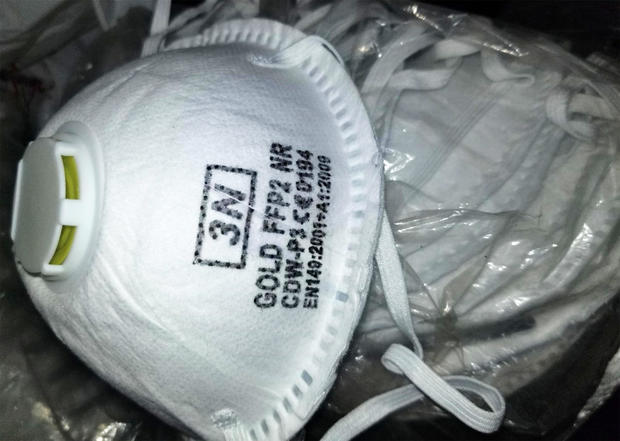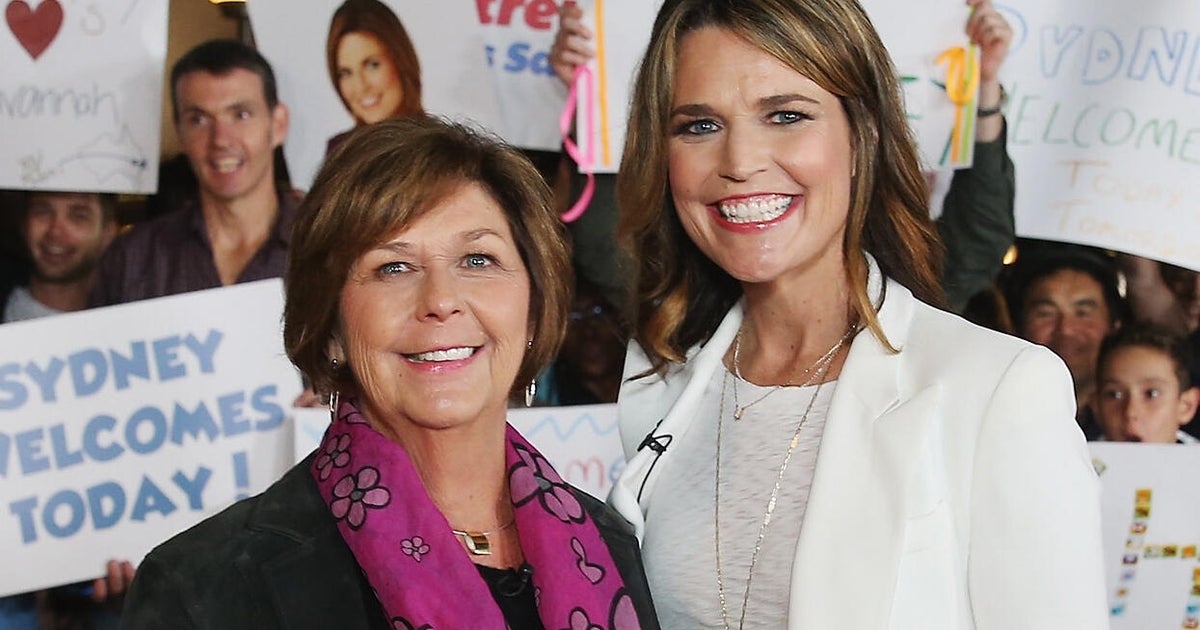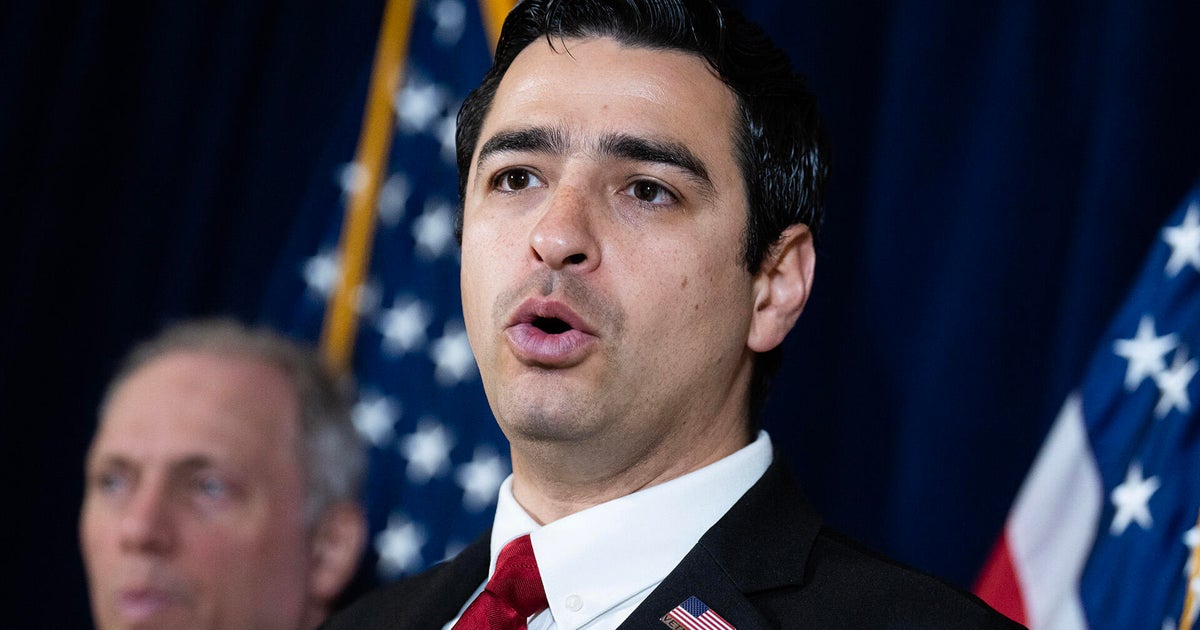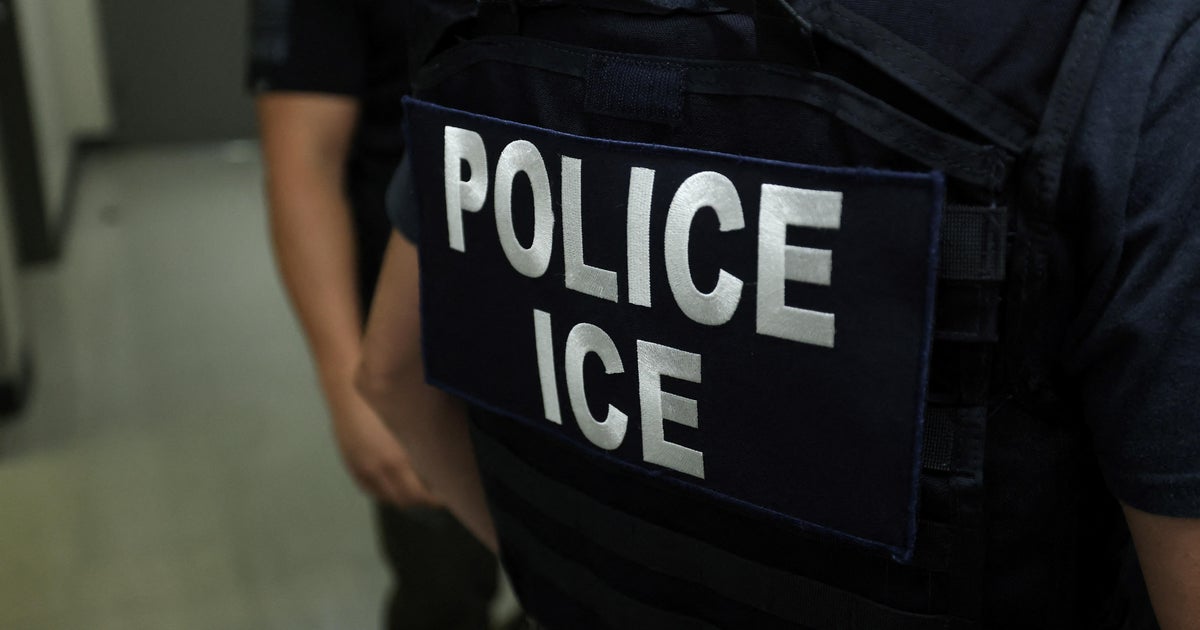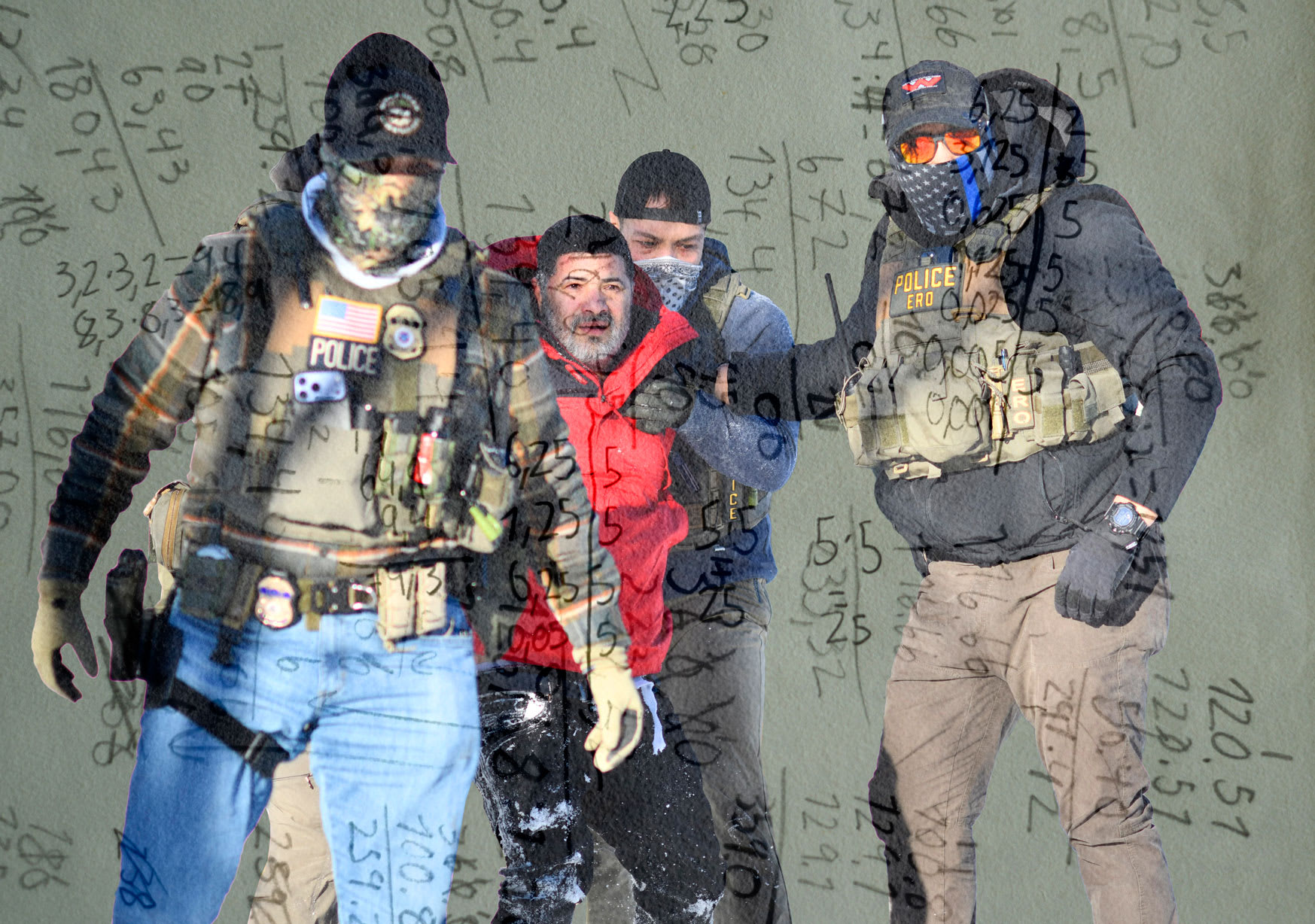U.S. Customs has seized millions of counterfeit N95s. Here's how to spot a fake.
U.S. Customs and Border Protection officers have seized nearly 15 million counterfeit face masks since the beginning of the coronavirus pandemic, the agency reported Thursday. Agents confiscated the unsafe personal protective equipment as part of an effort to prevent criminals from exploiting the public crisis for economic gain.
The agency also seized roughly 180,000 prohibited COVID-19 test kits and more than 38,000 prohibited chloroquine tablets typically used to treat malaria. Chloroquine is considered safe for patients with malaria, but has not been shown to be an effective treatment for COVID-19.
Customs and Border Protection import personnel work closely with legitimate trademark holders to identify fake N95 and surgical masks, which may not meet U.S. health and safety standards. Authentic N95 masks are critical for protecting frontline workers from aerosols and droplets that could contain the virus.
"What we've seen is there certainly is a market for these. All of us in the U.S. are really anxious for high-quality masks and test kits and medications," CBP executive assistant commissioner Brenda Smith told CBS MoneyWatch. The "N95 is a really desirable mask right now and really likely to be counterfeited."
When counterfeit goods are sold in the U.S., they also deprive legitimate sellers of revenue, Smith added.
"These are a danger not only to the consumers that may get fake or harmful goods, but they're also frankly a problem for U.S. businesses," she explained. "A lot of businesses have shifted production to try to support getting protective equipment and medications and even vaccines for U.S. consumers, and when we buy counterfeit either knowingly or unknowingly, it harms those businesses that are trying to put a legitimate product out."
Chicago border protection officers in September intercepted 500,000 counterfeit N95 respirators shipped from Shenzhen, China. Officers sent 30 masks from the shipment to a Centers for Disease Control and Prevention testing site, which found that 10% of the tested respirators filtered fewer than 95% of airborne particles, meaning the masks weren't up to snuff for use as protection from the novel coronavirus in hospitals and other frontline environments. The contraband's resale value was estimated to be worth more than $3 million.
Border patrol officers in December blocked another 100,000 falsely branded 3M N95 masks destined for hospital workers. Officers in El Paso, Texas, identified the masks, which were bound for an East Coast hospital.
Cargo Control and Enforcement officers In January seized another batch of more than 100,000 fake 3M N95 masks at John F. Kennedy International Airport in New York City. They had arrived from Hong Kong in two separate shipments, according to the customs agency.
It's particularly dangerous for unsuspecting health care workers to don PPE that isn't as protective as it claims to be.
"Allowing counterfeits like these to reach the public or our health care heroes is a risk we cannot take," said Troy Miller, director of CBP's New York field office.
Slipping through the cracks
Some unapproved respirators have slipped through the cracks and made it to the U.S. market. Megan Ranney, an emergency physician at the Rhode Island Hospital in Providence said that because authentic N95 masks remain in short supply, it's recommended that they be reserved exclusively for health workers.
An organization she co-founded, called Get Us PPE, is dedicated to providing front-line workers with protective equipment and has received donations of counterfeit N95 masks.
"Earlier in the pandemic, health care providers were just deluged with scammers," she told CBS MoneyWatch. "We received some donated KN95s that we test, and you would have two out of a batch that would fail even within a single manufacturer."
How to identify a genuine N95 mask
By now, customs officers are practiced at identifying suspicious mask shipments. They monitor trade patterns and monitor suspect manufacturers and shippers. Suspicious product descriptions can also draw scrutiny.
"We have dedicated CBP officers out there looking. They get pretty good at being able to differentiate between a counterfeit good and a real good," Smith said.
They also work closely with the CDC and the National Institute for Occupational Safety and Health (NIOSH) to understand the differences between unapproved and approved masks. While it can be tricky to distinguish a real from a counterfeit mask, the CDC keeps a list of approved respirators by manufacturer.
Any mask that claims an N95 approval rating must have been rigorously tested by NIOSH. Respirators approved by the agency bear labels either on the respirator or within its packaging, and includes an abbreviated approval on the face piece itself. Approval numbers can be cross-checked against NIOSH's certified equipment list.
Consumers should generally avoid shopping for such masks on Amazon and eBay, experts say. Instead, people should refer first to the CDC's list of N95 alternatives that the U.S. Food and Drug Administration approves for use in health care settings and try to buy them directly from the manufacturer.
Counterfeit or unapproved N95s typically lack the required NIOSH markings. Occasionally, NIOSH or the mask's purported brand name will be misspelled. Any decals like sequins indicate a mask is fake. Additionally, N95 masks that claim to be approved for children are counterfeit, according to the CDC. Avoid masks with ear loops, as opposed to elastic headband straps, as they do not provide the tight seal around the face that N95s require.
The CBP's Smith urges consumers to purchase PPE from reputable retailers and to avoid third-party vendors and sellers whose names they don't recognize. The agency destroys the masks it seizes given that they would pose a health risk to the wearer who mistakenly thinks it's hospital-grade gear.
"The most immediate enforcement action we're able to take is the seizure of goods. The importer will lose access to them and we keep them out of U.S. commerce so they are not actually getting to consumers," Smith said. "And in these instances, we would destroy them because they are a threat to health and safety."
